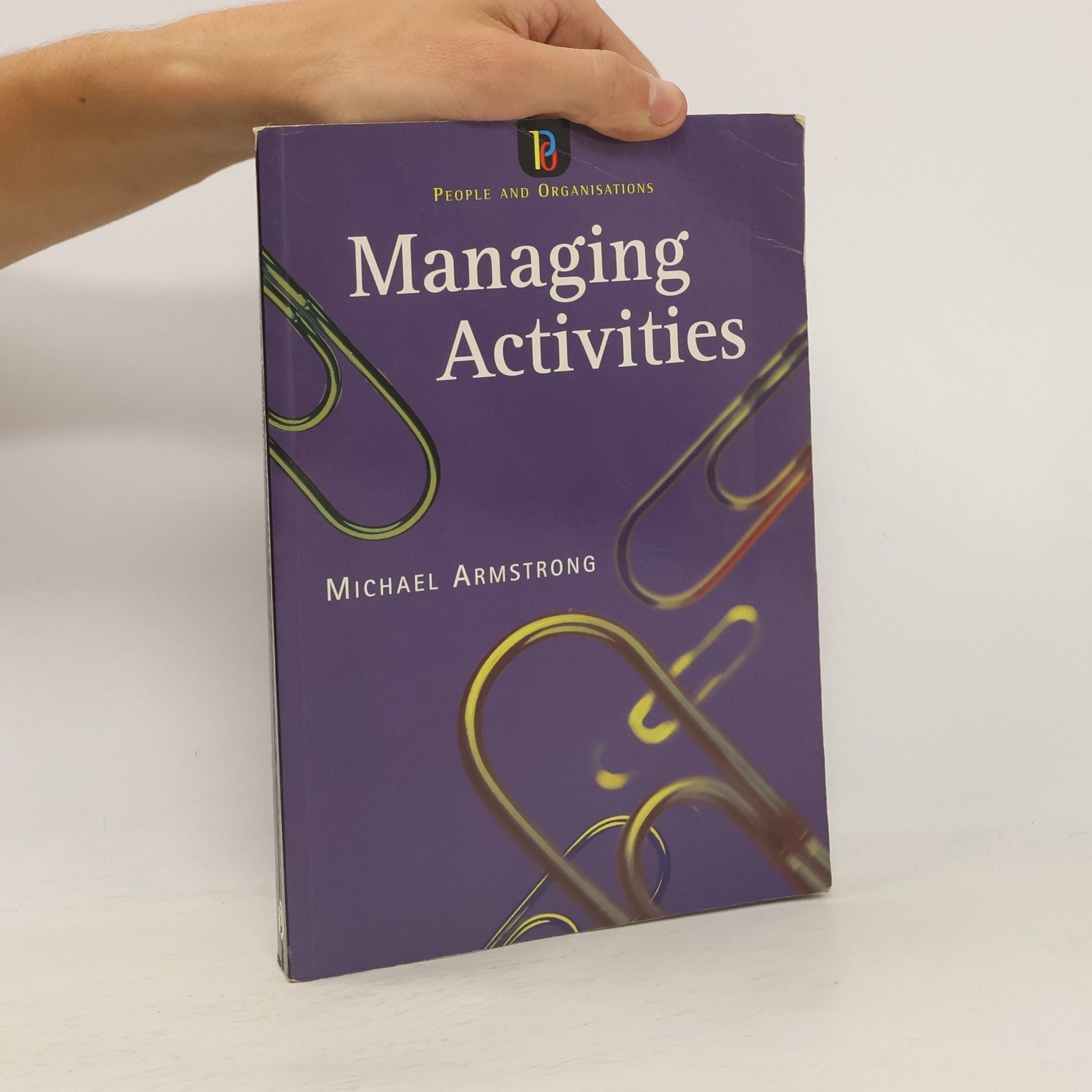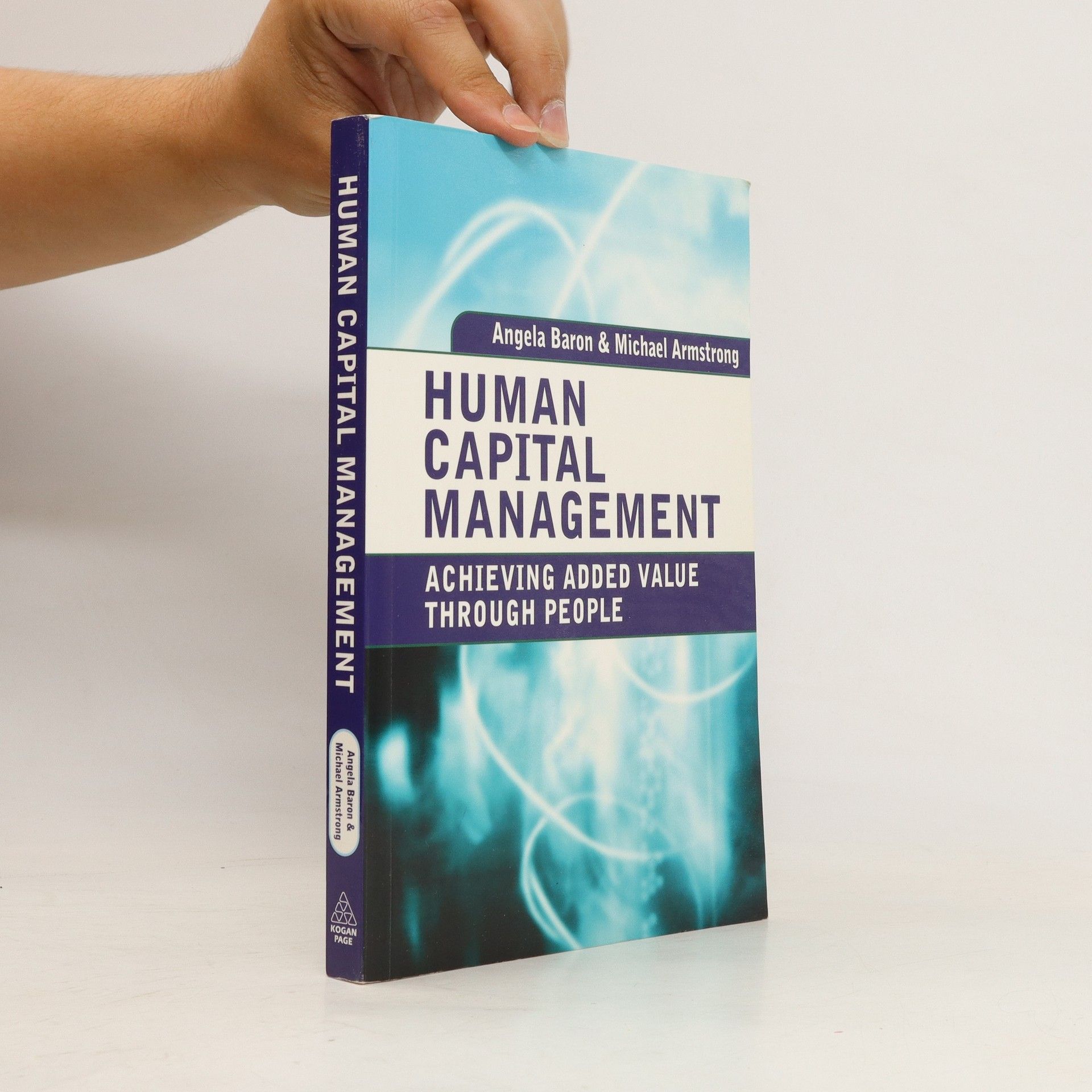Michael Armstrong Bücher
Michael Armstrong wechselte vom Marketing in den Non-Profit-Sektor, wo er als Geschäftsführer für mehrere namhafte Organisationen tätig war. Nach der Geburt seiner Tochter wurde er Hausmann und entdeckte seine Leidenschaft für das Schreiben von Kinderbüchern neu. Seine Arbeit zeichnet sich durch Verspieltheit und die Fähigkeit aus, junge Leser anzusprechen. Armstrong ist ein aktives Mitglied der Society of Children's Book Writers and Illustrators, und seine Bücher werden für ihre Originalität und sensible Auseinandersetzung mit Themen geschätzt.







Die vollständig überarbeitete und aktualisierte Ausgabe dieses praxisorientierten Handbuchs deckt fünfzig spezifische Bereiche des Managements ab
This guide lists and describes the systematic and analytical methods used by business managers to assist the decision-making process and improve efficiency, particularly with reference to planning and control. All concepts are accompanied by diagrams which illustrate particular points.
Armstrong's Handbook of Performance Management
An Evidence-Based Guide to Delivering High Performance
Managing staff performance is an effective mechanism for developing both staff and organizational growth. By clarifying an organization’s objectives, translating these into clear individual goals, and reviewing these goals regularly, performance management provides a well-structured and effective management tool. This new edition of Armstrong’s Handbook of Performance Management looks at the results of major research in this area. Armstrong considers how evidence-based material can inform one’s understanding of performance management, and he provides practical guidance on how this evidence can be interpreted and applied.
Managing Activities
- 318 Seiten
- 12 Lesestunden
Managing Activities describes and explains the nature of managerial work. It gives a definitive overview of the activities carried out in organisations to achieve their aims and meet the expectations and needs of their stakeholders - owners, managers employees, customers, suppliers and the public.
Reward Management
- 722 Seiten
- 26 Lesestunden
Based on British practice but also of interest to American HR professionals, Reward Management has been judged “the undisputed ‘bible’ on the topic” by the Journal of Administrative Management. This definitive book explains reward management, which is concerned with formulating and implementing strategies and policies that aim to reward people fairly, equitably and consistently in accordance with their value to the organization. It examines in detail the processes and various approaches that can be adopted to achieve and reward outstanding skill and competence levels in the workplace. Comprehensive and highly practical in its approach, it takes a strategic perspective and addresses the wide gap that exists between theory and practice, with a focus on the implications for practitioners.
How to be an Even Better Manager
A Complete A-Z of Proven Techniques & Essential Skills
- 333 Seiten
- 12 Lesestunden
Praise and Reviews "Those with managerial responsibilities will find this a useful guide to keep on their shelves and dip into for background material and guidance on a range of business topics."- Business Franchise"A practical and straightforward guide to successful management, written with the benefit of over 30 years' experience."- Business ExecutiveThe demands made on managers in today's turbulent, uncertain and demanding world constantly increase. Even the most experienced manager needs to keep abreast of new developments and periodically brush up on essential skills.This new edition of the best-selling practical management guide has been fully revised and updated to cover 50 specific areas of management in a clear and relevant way. Each is self-contained and can be dipped into, but all fall into the three broad categories in which any manager needs to be competent:managing peoplemanaging activitiesmanaging and developing yourselfAn invaluable handbook for existing and aspiring managers, How to be an Even Better Manager also takes account of recently developed approaches to management, and includes new thinking on familiar aspects of the manager's job. No book can tell managers what to do in every situation, but this incomparable new edition provides guidelines that will help you build up managerial knowledge and skills.
Aimed at human resources practitioners, this volume explains how managing human capital impacts business performance and profitability. Baron and Armstrong discuss the concept of human capital management (HCM), describe how it works in practice, and identify the specific skills HR specialists need in order to deliver effective HCM. The appendix includes a “toolkit” that organizations can use to develop their own policies.



